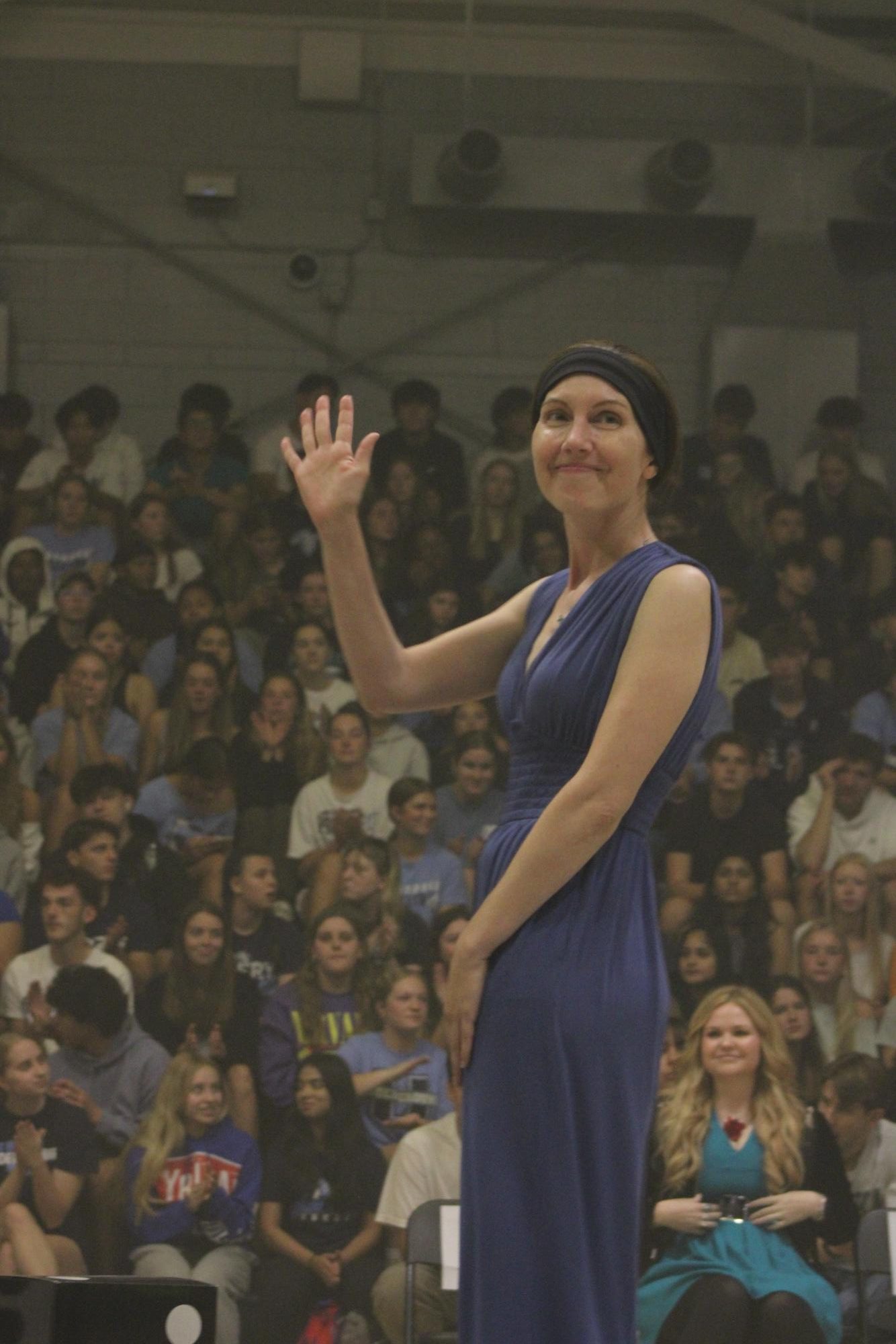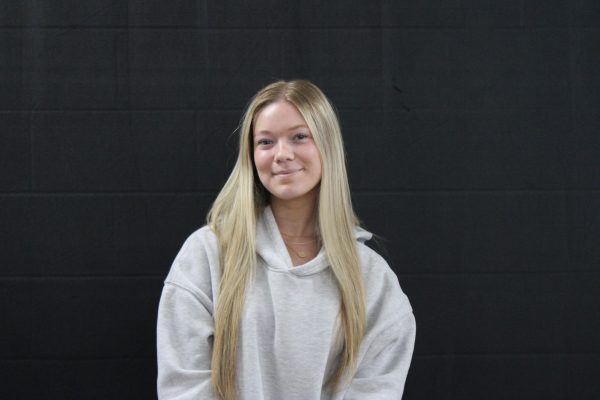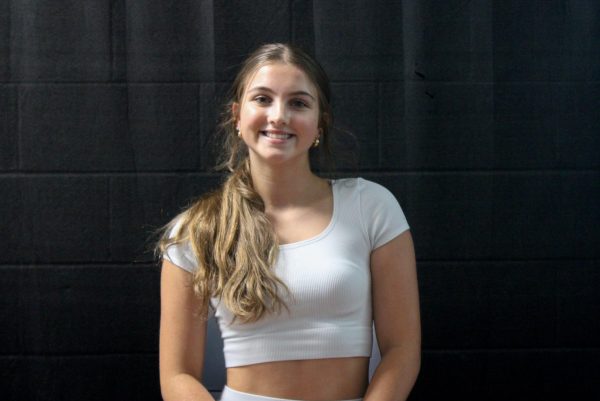When reflecting on her proudest moments, Annie Simon also recalls her least proud moments, which both go hand-in-hand. While working with an above-knee amputee, Simon had to engineer a prosthetic that could provide her research participants with the power to go upstairs. In her job, Simon says it’s mainly trial and error, with “90% failure, if not 99% failure.”
“[When I get a prosthetic to work] it feels like I want it to happen again, right?” Simon said. “The engineer in me is like ‘that worked once. Can you see it twice?’ … I want to see it repeated.”
Simon graduated from Prospect in 1998 and attended Marquette University where she earned a Bachelor of Science (Biomechanical Engineering). Most recently she obtained her PhD in Biomedical Engineering, which she uses in her job as a Biomedical Engineer and Scientist. Simon’s accomplishments were honored at Prospect’s Homecoming Assembly on September 13. At the assembly, three distinguished alumni were recognized for their contributions to society.
“The highs [in my job] are when I can have a prosthesis that’s working well, and I can put it on a person and they can see the benefit of this … device, or I can have them go upstairs [or do] something that they hadn’t done since their amputation,” Simon said.
Currently, Simon works in the Center for Bionic Medicine at the Shirley Ryan Ability Lab in Chicago where she works to improve the control of robotic arms and legs for individuals who have lost limbs.
“I continually have to find ways to solve problems and fix the devices or fix the way it works with somebody,” Simon said.
While Simon does not attach the prosthetics herself, she works closely with physical therapists and prosthetists who are the ones who fit the prosthetic to the patient.
“We’re all trying to improve not only the device, but how the device attaches to the person, and how the person uses [it] to improve their mobility,” Simon said.
Simon noted the recent rebranding of the lab, which promotes inclusivity and a future-thinking mentality. The rebranding is important to Simon and the work she does.
“We rebranded because we didn’t want to be known for rehabilitation,” Simon said. “We wanted to be known for bringing out people’s abilities. If you have a disease or a disability, we want to focus on what your ability [is, and] what you can do, as opposed to what you lost.”
During her time at Prospect, Simon participated in color guard, poms, student council and junior/senior leaders. In her shop class and technical drafting class, Simon recalls being one of a few girls.
“I did all of that … [and] I had confidence in myself to say ‘I’m gonna do this because I like it,’” Simon said.
As she was deciding on her major, she thought about her passions for math and science, as well as her communication skills, which led her to choose Biomedical Engineering.
“I was good at math and science, and I heard of this thing called Biomedical Engineering … [but] I didn’t know what that meant,” Simon said. “It means so many more things now than what Biomedical Engineering meant 25 years ago, but I thought that was good enough for me, so I’m going to go into Biomedical Engineering.”
When thinking about where she wants to be in 10 years, Simon doesn’t have a definite answer. She admitted to reconsidering her career many times, but what always stopped her was her reluctance to change. Given her drive and determination, Simon is continuing to pursue her passion for helping others.
“I would say that I kind of just kept following hard work and following any opportunities,” Simon said.
Thinking back to being the only girl in a traditionally male-dominated field, Simon sometimes questions where her confidence comes from.
“[I had] all that confidence, and now I have all the knowledge and all the experience, and I don’t have any more confidence, but I still have the hard work to support it,” Simon said. “ … They kind of ebb and flow.”
Simon’s advice for high school students is, “If you’re trying to figure out what you’re doing, [but] you’re not sure, it’s okay. Some of us don’t ever figure it out. But if you put hard work in, and you kind of lead with what you like to do, eventually you’ll get some opportunities that line up with your hard work to kind of see it through your future.”

















